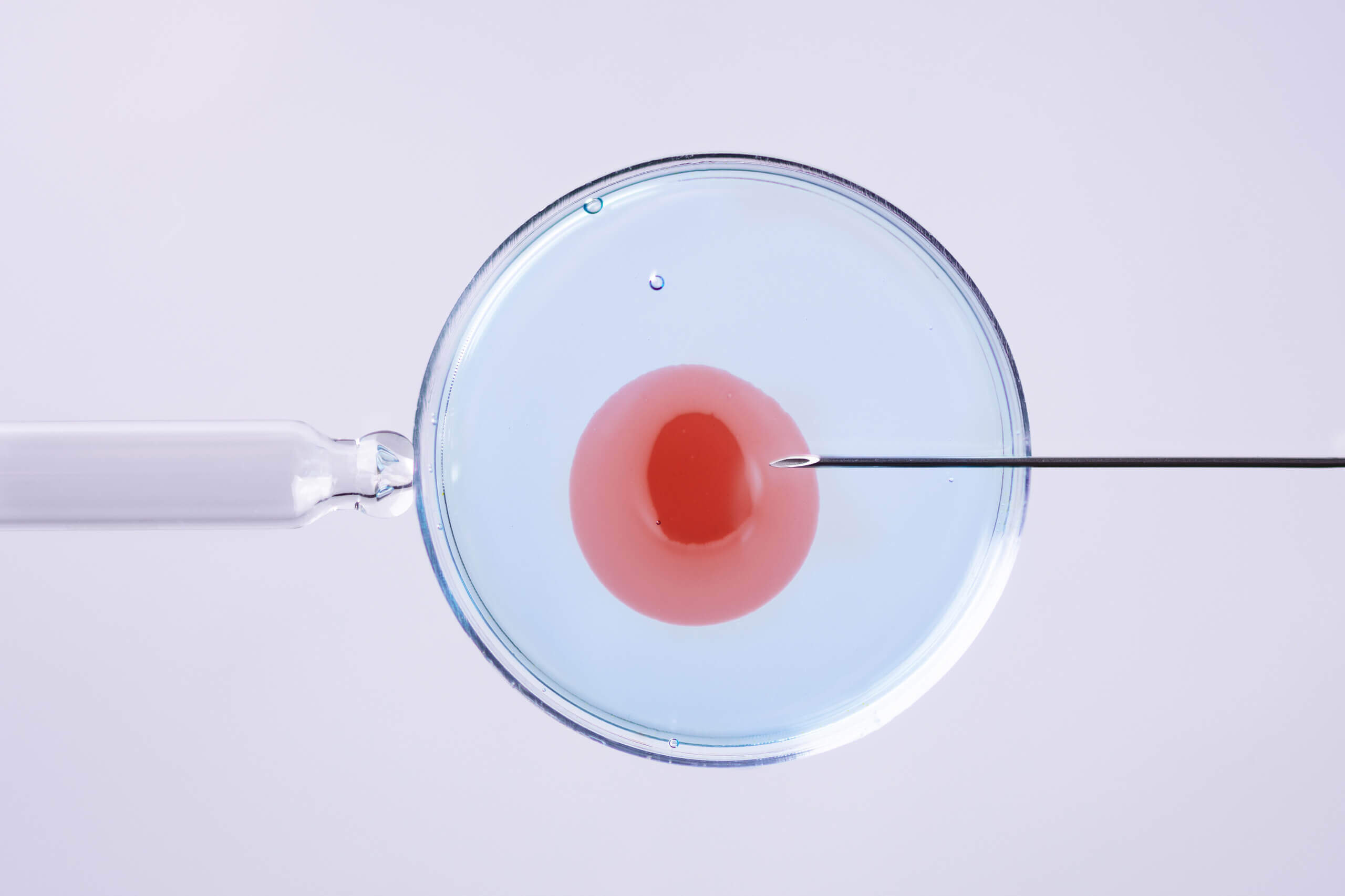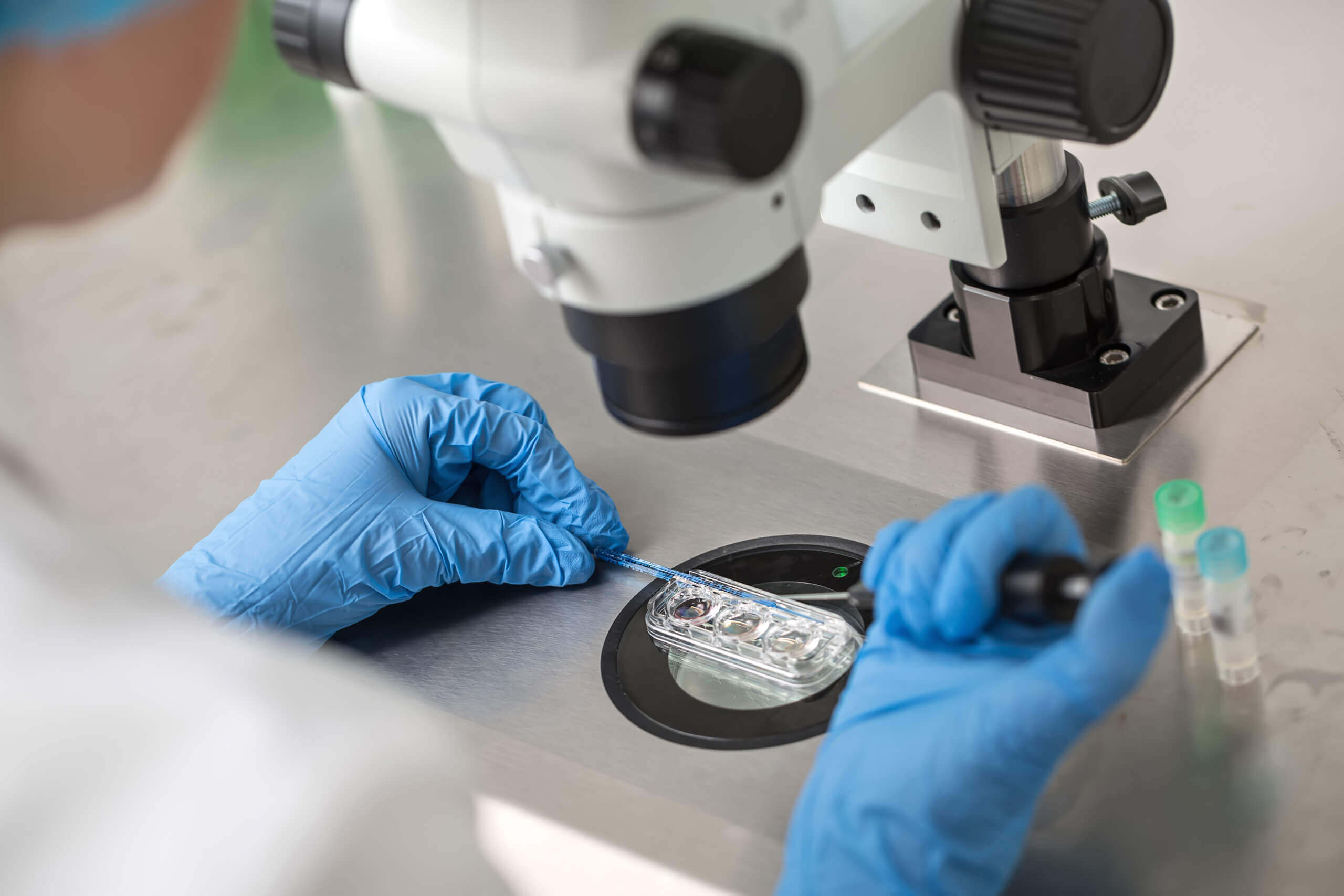FAQs

Frequently Asked Questions
Dr. Eva Littman answers some of the most common questions regarding fertility and Red Rock Fertility Center:
Click on the video FAQs below. Should you have additional questions or would like to speak to a member of the Red Rock Fertility team, please fill out the form at the bottom of the page, or give us a call at (702) 749-4703.
Pregnancy Planning

One of the most common questions that I am frequently asked is “what can I do in order to increase my chances of getting pregnant” and I would say that depends on your general state of health at this point in time. If you are technically overweight, then the process of losing weight to a BMI of about 25 or less, between 20-25 is most optimal, that will help tremendously because estrogen and other hormones are stored in the fat cells and sometimes when you have excess fat cells, these hormones can inhibit the process of ovulation and therefore cause you to be infertile.
I would say some of the most detrimental toxins that can be hazardous to your fertility are pesticides, also BPA, like things that are found in a lot of the plastics that are used on a regular basis and then in sunscreens. The Oxybenzone, Dioxybenzone, all of those things have been shown, if you go to SkinDeep.com, to be reproductively hazardous. The safer sunscreens are the ones that contain zinc-oxide and things like that where it reflects the sunlight rather than absorbing the UV rays into the body. These Benzones can be kind of estrogenic and can cause fertility problems.
When you look at organic products, you really have to scrutinize whether they’re truly organic or parading it as organic. There are a lot of things that are labeled organic, which are not 100% organic. In order to get the certification, unfortunately you don’t have to have 100% of the contents to be organic. You just have to have the majority, or like 80%, and so therefore, there can still be toxic contaminations such as pesticides and other toxins in organic products. I know it’s a lot of research and everything that has to go into it and time and such. People don’t have the time to put into it, but it’s really worth it if you can look up some of the manufacturers, some of the producers and see how the produce is being developed and exactly what is going into it. How your meat is being developed.
Now there are meats that are being paraded around as organic because there’s no testing for other hormones that are in the meat, such as Zerinol. Zerinol is a progesterone like substance that causes cows to grow faster, but doesn’t get detected in the usual tests for growth hormones. There’s a lot of ways around the system and therefore you have to be very careful when you’re picking out your meats, your vegetables, and your produce.
Anything that’s going to go into your body can cause a toxic or hazardous reproductive reaction you definitely want to start avoiding if you’re getting ready to conceive.
I would say that the most enjoyable part of my career is dealing with my male patients. When I first went into OB/GYN I didn’t think I’d have any male patients and now half of my patients are male and I thoroughly enjoy interacting with them. I find that they are very apprehensive to begin with, and that’s why we have an online survey that they can fill out which asks them questions like “do you have trouble with your erections? How many times a week to you masturbate?” Things like that are done on a survey so there’s not the direct interaction with me as far as that, but I get to read the information and learn more about what could be contributing to the process or whether or not they’re infertile.
I would say that the main question that I get from men or the main statement that they’ll say to me sometimes is “I have had previous paternity, but I don’t want my wife to know” or “I have had a previous disease, but I don’t want my wife to know” and so those things are very important in the process and they are items that I need to know and I do want those items related to me so that I can make a judgment on whether or not you have the potential to be fertile at this moment.
I would caution people to look more at the range of the type of patient that a clinic is taking. The more difficult patient is going to have a success rate of about 10% per cycle. So, if a clinic is seeing patients that have a 10% success rate and their average success rate is 30-40%, then that is actually an achievement, not a disappointment and so I would caution those that just look at the number, simply the number, that is put down for a success rate because every individual has a different success rate depending on how many previous cycles they have failed, what their FSH level is, what their egg quality is, how much ovarian reserve they have, meaning how many eggs they have left on the ovary, what the sperm quality is of the male. Has he previously been able to fertilize an egg on his own, or has previous paternity? What his age is. What the age of the female is. I mean there are so many different factors that go into determining what a person’s success rate is that you cannot simply look at the age, which is the usual parameter that we list on a success rate chart on an internet website. You can’t just look at the age of the female and determine that.
I would say if you want to only look at a certain number, what you should look at is the donor success rate, the egg donor success rate. Egg donors are picked for their fertility, not for their infertility so therefore they should not have a certain degree of infertility in that patient pool. So therefore that number should be an accurate measurement of the clinic that you’re looking at. That is the only number that I would look at. Egg donors usually have a normal FSH, are usually under the age of 30 and they have normal menstrual cycles. They should have on national average about 50-55% success rate, anything lower than that, I would not recommend that you visit that particular clinic.
Most of the time IVF clinic websites, they do not list the range or the type of patients that they include in their cycles and they also don’t list the range of type of patients that they’ve canceled from their cycles. Very few list their cancellation rate. I would beg to ask you that if you see a clinic that is posting a very high success rate that you ask them what their cancellation rate is and what factors go into canceling a patient, because if a patient’s cycle is canceled, then their data is not included in the calculation of a success rate and this is how the statistics can be skewed and be very misleading.
In Vitro Fertilization (IVF)

I am not the type of physician that only tells you one way to go. If I tell you that you only need to do IVF, that’s because that is the only procedure that would be successful for you. What I usually do is give you various different options and their success rates and then you have to make the final decision on which way you would like to proceed.
I know a lot of my patients try to time their visits so that they’re not carrying through the hot summer and whatnot, but the initial consultation visit usually is about two months prior to actually undergoing therapy so if you are one of those people who wants to deliver in a certain year or would like to try to aim to deliver in a certain month, you need to consider that when you’re scheduling your initial consultation visit.
For the male, we need a semen analysis to be done, which measures the count of the sperm, how the sperm are moving and how the sperm are shaped. It’s very important that these parameters are determined to be abnormal or normal so that we can be prepared as we go through the in vitro process.
For the female, an assessment of their egg quality is usually done on the third day of the menstrual cycle. At that time, we carry out an ultrasound which will allow me to count the number of eggs that are on each ovary and also I correlate that with an FSH level. FSH is follicle stimulating hormone, which is the hormone produced by the brain in order to develop the egg every month. As a woman gets closer to menopause, that level increases. We do a correlation of the egg count, which is called the anti-follicle count, along with the follicle stimulating hormone level, and this will allow me to assess where a woman is in their fertility status.
In Vitro Fertilization is not the correct procedure to be chosen for everybody. There are clinics who push people into that procedure who could get pregnant on their own or with minimal assistance. These women have a very high chance of success if they were to go through In Vitro Fertilization process so therefore clinics push these women into In Vitro Fertilization in order to up their less than 35 year old ranks, because these women only have a small problem that needs to be fixed, not something that requires In Vitro Fertilization. Their success rate per cycle is going to be 70-80%, almost like an egg donor so if you put potential egg donors into your IVF pool, you will increase your chance of having a higher average success rate for your clinic.
So most IVF clinics do not offer genetic screening included in their IVF packages. Here at Red Rock Fertility Center, we do because we’ve determined that a number of normal looking embryos can be genetically abnormal and when these embryos are transferred, they either will not implant or they will cause a miscarriage, and we would really like to avoid that because a miscarriage can be very detrimental to your mental and emotional state. Therefore, we only transfer the normal embryos that have been conceived.
Here at Red Rock Fertility Center, we’ve chosen to do the more accurate thing, which is to access the genetic composition of the embryo. Once we know the chromosomes, whether they’re normal or not, then we can determine by looking at the morphology which embryo is the best out of those normal ones and that has led us to be able to have Ultra IVF, which is the process of determining which embryo would give you the best chance at success.
I have a number of patients who are of advanced maternal age or as we would say over the age of 35 who are professionals and the chance of having a Down Syndrome baby or having a baby that is born with several defects is not something that would go along with their career choice or their lifestyle, socially. Therefore, when we screen for these genetic abnormalities, it also shows us which embryos are Down syndrome. Trisomie 18, trisomie 13, these are all syndromes that could implant and create a pregnancy that would go at least through the second trimester. I think it’s very important that these embryos be evaluated before implantation happens rather than taking the risk, especially as the age of the woman increases, it is well documented that these abnormalities increase with the age of the female.
IUI and Other Services

IUI stands for Intrauterine Insemination and basically with that process, the sperm is washed after it’s been collected from the ejaculate and then concentrated and then placed up inside of the uterus. The difference between this and timed intercourse is with timed intercourse, approximately 10% of the sperm is making it up inside of the uterus versus with Intrauterine Insemination or IUI, the whole ejaculate is concentrated down, washed and then placed up inside of the uterus. Therefore there’s more sperm to have more of a chance to meet the egg.
In order to assess the Fallopian tubes, a hysterosalpingogram is performed. During this procedure, dye is placed into the uterus and then it goes into the Fallopian tubes and a radiologist or physician can determine whether or not the tubes are patent, or open.
In the event that a pregnancy cannot be achieved with your own eggs, there is the option of egg donation. I would say that this is a better option over adoption given the fact that with egg donation the recipient mother can still carry the pregnancy through to term and bond with the embryo over that time period.
Also, because of the fact that the pregnancy has been undertaken by this person, they’re going to be able to breastfeed and do all the things and experience all of the wonderful things that can happen during a pregnancy and also they control the environment for the fetus during that period of time, which is unlike the adoption process so there’s a lot more certainty in the process because of the fact that you carry the fetus.
You bond with the fetus and you have that child and that is your child at that point. I would say that all the women who have gone through the egg donation process here at Red Rock Fertility Center do not have any regrets about that. They love those babies and those babies love them unconditionally and I think that that’s the most important part of this process.
Our Facility

What a Clean Room means is that there’s not very much dust, dirt or contamination in the air, very much like what is done when people are working on a microchip. You cannot let dust land on a microchip because then it will cause it to short circuit. Same thing with an embryo, an embryo is microscopic and any piece, no matter how small, of dust or contamination can cause that embryo not to progress.
I have also actually provided more incubators in the lab than what is needed to carry out the number of cycles that we are doing because to me, the individual incubation plays a huge role in whether or not the embryo will be successful. The more the door is open to the embryo’s, the more fluctuation they undergo when they are trying to progress and develop into what’s going to be a baby someday so therefore we like to limit the amount of times we need to open and close the doors to the incubator and by having individual incubation units, we can do that here at Red Rock Fertility Center. We’ve seen that not only are the success rates high, but the babies are smart, beautiful and everything you’d love them to be.
Because of installing all of these double checks and various different identity confirming procedures at our clinic, we have had zero mix ups of embryos, eggs or sperm to this date and in the future I don’t anticipate to have any mix ups or misidentifications at all as well, which allows me to sleep very well at night.